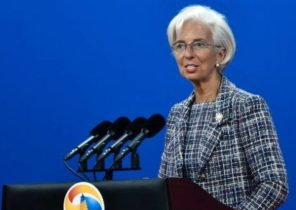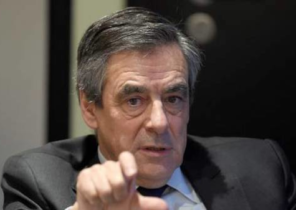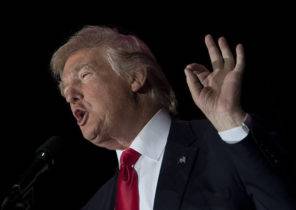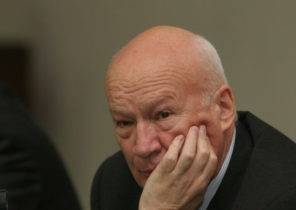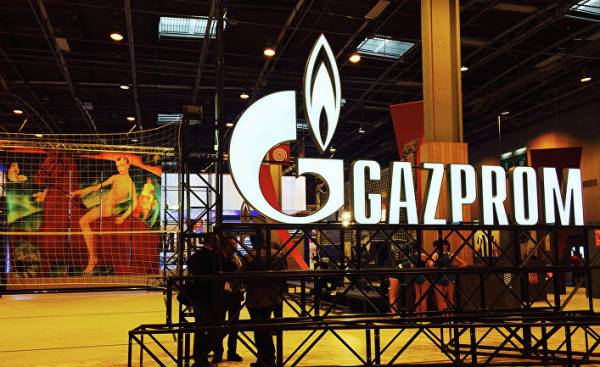
The European Commission has gained a lot of experience in dealing with monopolists, having to punish such giants as Microsoft, but for Gazprom it feels incredibly soft.
Continued for almost five years an antitrust investigation against Gazprom is nearing its end. Although it is still unclear what steps will eventually have to go to the Russian concern, it is known that he won’t be the most severe punishment (a fine of 10% of turnover), nor any other penalties. There is reason to believe that the commitments will take on Gazprom, are not too onerous. This is indicated, in particular, the draft agreement, which Brussels officials published for consultation. The Polish side has subjected him to criticism.
The fact that reconciliation will occur on the terms proposed Gazprom: draft document, presented by the European Commission partly relies on made his own proposal. This might seem surprising, because two years ago Brussels had himself acknowledged that Gazprom as a gas supplier to Central Europe and the Baltic States, used its monopoly position: he earned, and buyers were at a disadvantage. So, from a legal point of view, he deserves to be punished, as other companies are abusing their privileged position in the market. The Russian giant was not scared and did not change his policy — he only tried to maximize the use of the time allotted to answer the charges, that is, the exchange of correspondence with Brussels.
Way to move on from the past
The European Commission accuses Gazprom that it misused its market position in eight countries: Bulgaria, Czech Republic, Estonia, Lithuania, Latvia, Slovakia, Hungary and Poland. The concern is inflated prices of gas that it delivered, and included in the contracts unacceptable items — such as the prohibition on the resale of the resulting materials. In addition, prices in the contracts were formed on the basis of the oil and gas quotes, while customers from Western Europe had the opportunity to choose the second option.
“The charges are serious, and the Russian giant could continue to operate for many years, as each of these countries dependent on its supplies, — said the employee of the Institute for energy research Andrzej Sikora (Andrzej Sikora). This situation began to change in part only in the last two years, for example, Lithuania has launched floating terminal for liquefied natural gas, and Poland has created a gas terminal in Swinoujscie,” he adds.
European Commissioner for competition, Margrethe Vestager (Margrethe Vestager) expects that the agreement will bring positive effects: gas will flow to Central and Eastern Europe free, the prices will be competitive, and the Russians will amend the treaties to make them more profitable for the customers.
“When in September 2011 the investigation has just started and began with the verification of documents of companies of Gazprom in the EU and its key customers in the region, in particular, companies PGNIG and EuRoPol Gaz, it seemed that the Russians will have to change your approach, and the countries of Eastern and Central Europe will be able to feel their equal partners, — said the employee of law office DZP Gradac Paul (Paweł Grzejszczak). Is, surprisingly, not occurred, although the European Commission is obliged to protect competition and equal treatment of buyers in the European market. It is a cornerstone. Officials worked for five years, but the mountain gave birth to mouse. For Gazprom on the market, almost nothing will change.”
As suggested by Andrzej Sikora, Gazprom will fulfill those requirements, which are convenient to him, especially since he had already begun to abandon some of its limitations — in particular, from the ban on gas re-export. “The problem is that the specific requirements for the future work of the Gazprom practically is not presented. Is the impotence of the European Commission looks amazing,” he says.
To punish Gazprom demands the Polish oil and gas company PGNiG, whose head Peter Wozniak (Piotr Woźniak) a few days ago reminded that the Russian company did not respond to Commission charges and continued to abuse their monopoly position. PGNiG offers to curb this practice, by adding agreement for more points. Speech, in particular, is that the buyer does not pay for the entire contract volume of gas, but only for the one he got (which is a restriction of the principle of “take or pay” up to 75%). In addition, the company proposes that the gas pipeline linking the two countries (so-called jumper), the gas could go in both directions, and Gazprom was not able to control the pipelines to Europe.
“This is particularly important in the context of the fact that the Russian giant may, for example, have an impact on the shipment of gas that goes through the pipeline connecting Poland and Ukraine”, — says Andrzej Sikora. He recalled that the Russians want to have full control over the gas pipeline, located near the border with Poland in Eastern Germany. Then they will be able at its discretion to send large volumes of gas, which is supplied by two branches of the “Nord stream”.
“It should be added that the construction of “Turkish stream” will be ready by 2019 — emphasizes Sykora. — With this control and affecting the Ukrainian gas transportation network, Gazprom will be able to influence the Central European gas market to obtain a dominant position on the German market and to continue to “raise the level of security of supply” in the Netherlands, France and the UK”.
The coming months will show whether the European Commission will take into account the comments of PGNiG. Paul Gradac believes that Brussels cannot completely ignore the Polish demands, especially since they are aimed at improving energy security throughout the region, and this is one of the priorities of the EU.
If this happen, the Polish party, apparently, will attempt to appeal the agreement with Gazprom in the court of the European Union.
“Looking at a draft agreement with Gazprom and the failure of the Commission to impose on the company a fine, you may think that Brussels wants to do away with the past, though the last few years European laws that violate Gazprom did not work — adds Gradac. — In a word, it is the case of the past that should not return, and now Russians need to build relations anew. Unfortunately, there is no guarantee that the situation will not happen again.”
Billions of dollars of losses
PGNiG group did not publish information about how costly us policy of Gazprom, which he held since 2004. The Russian giant was very successful at overstated prices for Poland as they could afford it, and our country was powerless to change anything. Domestic production of blanket, only a third of our needs (now about 25%), the rest of the gas had to be bought. Deliveries were mainly from Russia, as with Western Europe, Poland was connected to only one pipeline. Gazprom is famous for the fact that he is able to take advantage of the situation. For example, in 2006, when it raised prices by almost 10%. How did this happen? The term of the contract, which PGNiG has signed with a Swiss company (half owned by Gazprom) has expired, so that the Polish group was in a bind: he had to accept the change that the country is not a deficit of gas. They say that one of the leaders of the PGNiG out of anger broke the handle, where you put a signature on a new contract.
Every increase in prices means for the Polish concern millions in costs. When in the beginning of 2015, the Agency “Interfax” has published the prices at which Gazprom sells raw materials to different countries in Europe, we have raised a wave of indignation (although reports that compared with Italy or Germany, we severely overpay, appeared already earlier). It turned out that, for example, in 2013, Poland was paying for 1,000 cubic metres of gas for 63 dollars more than Germany (2014 — $ 56). If the price was for the two countries are the same in these two years, PGNiG would have spent on gas is a billion dollars less.
Big business
Sometimes the question arises about why the approach to Russian companies is much softer than, for example, Microsoft, Apple or Google. If you ask representatives of the European Commission, they certainly surprised, however, Brussels officials are working with into account the geopolitical and business interests. Many people associated with the industry understand this, but prefer not to discuss the subject out loud.
Meanwhile, the facts are eloquent. The main is that the part of the politicians of the major European countries said Gazprom is extremely reliable and stable partner. Their opinion has not changed even the crisis of 2009, when the Russian company cut off supplies to Ukraine and eventually in the middle of winter gas lost several EU countries. In addition, economic and investment ties that support with Russia, countries such as Germany, Italy and France, is a field which deals with billions of euros.
Gazprom is the former German Chancellor Gerhard Schroeder: more than 10 years he was Chairman of the Committee of shareholders of the first Nord Stream consortium, and a year ago he led the Board of Directors of the “Nord stream-2”. Recently he was joined by one high-ranking employee of the German Minister of economy himself, Sigmar Gabriel, is known for its supportive attitude to this project.
It should also be mentioned that the German concern E. ON (and before that — Ruhrgas) is the only foreign shareholder in Gazprom, which has a significant (a few percent) stake. Former head of the company Ruhrgas Burkhard Bergmann (Bergmann Burckhard) for several years was the only foreigner who was a member of the Board of Directors of the Russian concern (in 2011, after leaving this post he became an Advisor Alexey Miller and was awarded the highest Russian state award).
Gazprom has established close cooperation with major Western European companies and makes it not only as a gas supplier. Companies E. ON, RWE, BASF, Italian ENI, the Austrian OMV, the Dutch Shell supported him during the construction of the gas pipeline “Nord stream” (its first branch goes through the Baltic sea from Gulf of Finland to the coast of Germany). It is now planned to build a second, what prospects means the termination of Russian gas supplies through Ukraine, and apparently in the pipeline “Yamal — Europe” through Poland. Although the project is in Europe a lot of controversy, the Russians are close to start construction. Its cost is estimated at 10 billion euros. In connection with it will appear attractive contracts for construction work or the supply pipes, which are interested in European companies.

